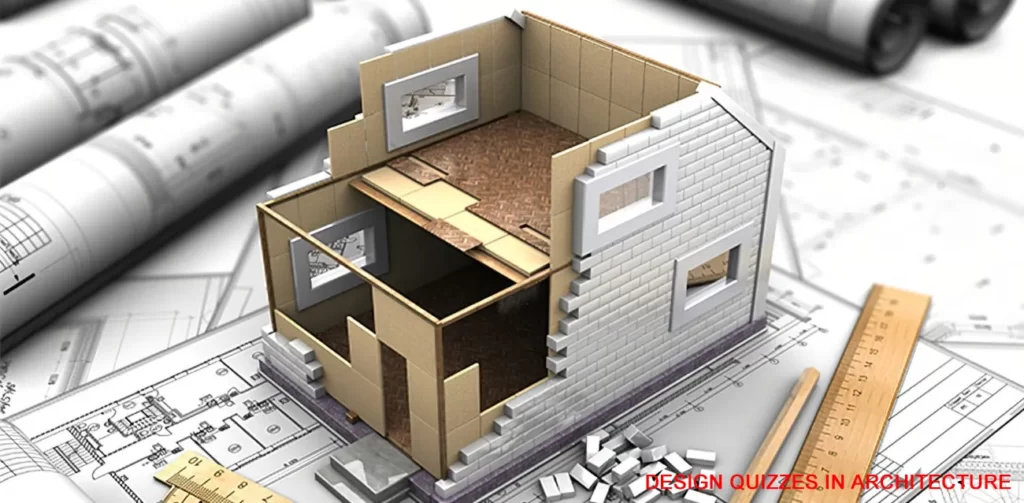Design in architecture refers to the process of creating a plan or blueprint for a building or structure. It involves considering a variety of factors such as the function of the building, its aesthetic appeal, and its safety and structural integrity. The design process may involve creating detailed drawings, models, and prototypes, as well as consulting with a team of architects, engineers, and other professionals. Good design in architecture is essential for creating functional, safe, and visually appealing buildings that meet the needs of the people who will use them.

There are many different approaches to design in architecture, and different architects and firms may have their own unique styles and philosophies. However, there are some common principles that are typically followed in the design process.
One important aspect of design in architecture is the concept of form, which refers to the overall shape and appearance of a building. Architects often use form to create a visual impact, convey a sense of movement, or evoke emotions in the viewer.
Another important aspect is function, which refers to the purpose of a building and how it is used. Architects must consider the needs of the people who will use the building, as well as the technical and logistical requirements of the building’s systems and structures.
Other important considerations in design include materials and construction techniques, sustainability and energy efficiency, and accessibility for people with disabilities.
Overall, the design process in architecture is a complex and multifaceted endeavor that requires a wide range of skills and knowledge. It involves creativity, technical expertise, and the ability to think critically and solve problems.
About design quizzes in architecture
Design quizzes in architecture are a way for students and professionals in the field to test their knowledge and understanding of design principles and techniques. These quizzes may cover a variety of topics, such as the elements and principles of design, design history and theory, computer-aided design (CAD) software, and building codes and regulations.
Design quizzes can be useful for a number of purposes. They can help students prepare for exams and assessments, and they can also be used by professionals to stay up to date on new developments and best practices in the field. In addition, design quizzes can be a fun and engaging way to learn more about architecture and design.
There are many different types of design quizzes available, ranging from simple multiple choice questions to more complex design challenges that require participants to create their own designs. Some quizzes may be focused on a specific aspect of design, such as residential architecture or landscape design, while others may cover a more general range of topics.
Overall, design quizzes can be a valuable learning tool for anyone interested in architecture and design. They can help students and professionals alike to develop their knowledge and skills, and to stay current with the latest trends and techniques in the field.
Design quizzes can be administered in a variety of settings, such as in a classroom, online, or as part of a professional development program. They may be created and administered by educators, professional organizations, or software companies.
Design quizzes can be graded or ungraded, depending on their purpose. Graded quizzes are typically used to evaluate a student’s progress or to provide a score or certificate of completion. Ungraded quizzes, on the other hand, are often used as a learning tool or for self-assessment, rather than for formal evaluation.
There are many resources available for finding design quizzes in architecture. These may include textbooks, study guides, websites, and software programs. Some universities and professional organizations also offer online courses or workshops that include design quizzes as part of the curriculum.
In addition to traditional quizzes, there are also many interactive design games and simulations available that allow users to test their skills and knowledge in a more immersive and engaging way. These types of activities can be especially useful for hands-on learners who prefer to learn through experimentation and problem-solving.
Overall, design quizzes are a valuable resource for anyone interested in architecture and design. They can help students and professionals alike to learn and grow in the field, and to stay current with the latest trends and techniques.
Design quizzes
We have created some quizzes for architectural students that will help them to improve their knowledge.
How much do you know about Design quizzes?
Trends and tactics are constantly changing
Test your knowledge
